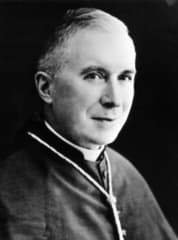アヴェ・マリア・インマクラータ!
愛する兄弟姉妹の皆様、
レネー神父様の霊的講話「ルターの誤謬と異端思想について」(日本語訳)をご紹介いたします。
天主様の祝福が豊かにありますように!
トマス小野田圭志神父(聖ピオ十世会司祭)
親愛なる兄弟の皆さん、
二週間前、教皇は、ルターがヴィッテンベルクの教会に九十五か条の論題を貼り付けた反逆の五百周年を祝いました。これはとんでもないスキャンダルですが、報道機関はあまりニュースにしませんでした。こんにちではそんなスキャンダルはあまりにありふれたことだからです。それでも、これは非常に間違ったものであることに変わりはありません。実際、ルターは歴史上で最も悪しき異端者の一人であり、何百万もの霊魂を迷わせ、永遠の破滅へと導いてきたのです。
ルターはときどき、悪行に対して戦った「改革者」として描かれます。しかし現実には、彼は自分が非難した悪行よりももっとひどい悪行を行いました。修道者として立てた三つの誓願を破り、修道院を去り、自分の影響を受けて修道院を去った修道女と結婚しました。暴力的な人間で、言葉で多く人に対して悪行を行い、最も聖なるもの、特にミサの聖なる犠牲と教皇制度を冒涜しました。しばしば酒に酔っていました。合法的な権威に反抗して暴力による反乱を先導し、十六世紀と十七世紀の「宗教戦争」の原因でした。どうしたら、そんな人間を手本として示すことができるでしょうか? 全く信じられないことです!
ルターの神学は一つの言葉で要約できます。「~のみ」です。この言葉によって、彼は真理を捻じ曲げ、真理を失いました。彼はこう主張しました。信仰のみ、恩寵のみ、聖書のみ、キリストのみ、と。これによって彼は真の信仰を失い、成聖の恩寵を失い、聖書の理解を失い、最後にはキリストご自身を失ったのです!
「~のみ」という言葉はルターにとって大変重要なものであったため、それを聖書に付け加えたのです! 聖パウロが「それゆえ信仰によって義とされた」(ローマ5章1節)と書いたところに、ルターは聖パウロが書きはしなかった「~のみ」の言葉を付け加えました。仲間のプロテスタントの中にはルターにそれを指摘した者さえいて、なぜその言葉を付け加えたのかを尋ねたとき、ルターはこう答えました。「なぜならルター師がそう言ったからである!」。このように、ルターは聖パウロさえも自分の思う通りに訂正したのです。
「信仰のみ」という表現によって、ルターは愛の必要性を拒否します。彼にとって、義化とは外的なもの、すなわち人の外のもので、その人は義であるという天主の宣言にすぎません。ルターによれば、その人は自分の罪において罪びとのままに留まるという事実があるにもかかわらず、そうだというのです。そのルター的な義化に必要とされる唯一のものは、「信仰のみ」です。これに反して、教会は聖パウロとともに次のように教えています。「たとい私が預言の賜物を持ち、全奥義と全知識に通じ、山を動かすほどの満ちた信仰を持っていても、愛がなければ無に等しい」(コリント前書13章2節)。ですから、信仰のみで愛がなければ、永遠の命に至るにいささかもふさわしくありません。人は信仰のみでは義とされません。
なぜ愛も必要なのでしょうか? なぜなら、義化は、義についての単なる外的な宣言ではなく、むしろ人の霊魂の、罪の状態(霊的な死)から恩寵と義の状態(霊的な命)への完全な変容だからです。体が霊魂から離れるとき体が死ぬように、霊魂が天主から離れるとき霊魂は霊的に死んでいるのです。その反対に、体が霊魂と一致しているとき体は生きており、霊魂が天主と一致しているとき霊魂は生きているのです。さて、天主とのその一致は、聖パウロが「愛は…完徳のかなめである」(コロサイ3章14節)と言うように、愛による一致です。その反対に、「もしわれらの主イエズス・キリストを愛さない者があれば呪いあれ。主は来り給う」(コリント前書16章22節)。このように、人は信仰を持っていても愛がなければ、聖ヤコボが「霊のない体が死んでいるように、行いのない信仰も死んでいる」(ヤコボ2章26節)と言うように、その信仰は「死んで」いるのです。聖ヤコボはここで、愛の行いのことを話しています。聖パウロが「なぜなら、キリスト・イエズスにおいては、割礼を受けることも受けないこともいずれも価値がなく、愛によって働く信仰だけに価値がある」(ガラツィア5章6節)と言うように。
ですから、そのような外的な信仰、弁論による信仰によって、霊魂の内的な変容と愛がなくとも、信仰のみによって人は義とされると主張することにより、ルターはまことの信仰そのものさえも失ったのです。
そしてルターは、人は行いなしに、「恩寵のみ」によって救われると主張します。ルターは、人がいかなる良い行いを行おうとも、それが人を救いに至らせることはできないと主張しました。良い行いは必要ではなく、天主の恩寵のみが人を救うと言うのです。これは明確に聖書に反しています。回心以前に、義化以前に、そのような回心をするにふさわしい超自然的な良い行いはあり得ない、ということが真実です。実際、成聖の恩寵の状態になる以前には、人は罪の状態にあり、恩寵ではなく罰を受けるのにふさわしいのです。しかしながら、回心ののちには、人生の終わる前に良い行いが必要であり、私たちの主イエズス・キリストの恩寵とともになされたこれらの良い行いが、救いのために必要なのです。
この良い行いは木に求められる良い実であり、そうでなければその木は切り倒されてしまうでしょう(ルカ13章6-9節)。この良い行いは、働き者の召し使いが、預かったタレントによってもうけた追加のタレントです。しかし、「受けたタレントを十分に実らせなかった、この役立たずのしもべを外の闇に投げ出せ。そこには嘆きとはがみとがあろう」(マテオ25章30節)。「よい実を結ばぬ木は、切り取られて火に投げ入れられる」(マテオ3章10節)。選ばれた者は、「なぜなら、私が飢えていたとき食べさせてくれた…」ので報いを与えられます。このちょっとした言葉「なぜなら」が明確に示しているのは、彼らに報いが与えられるのは彼らが良い行いをしたからだということです! また、地獄の宣告を受けた者は、良い行いをしなかったからそう宣告されたのです(マテオ25章31-46節)。ですから聖パウロはティトにこう勧告しています。「私たちの伴(とも)も必要な場合善を行うことを学ばねばならない。そうすればすべてが実を結ぶであろう」(ティト3章14節)。天主が良い行いに報いをお与えになるということは、聖書にある非常に多くの聖句で明らかです。箴言はこう言います。「貧しい人に施しをするのは天主に貸すことで、天主が恵みを下して報いてくださる」(箴言19章17節)。ですから私たちの主は言われます。「むしろ自分のために天に宝を積め。そこではしみも虫もつかず、盗人が穴を開けて盗み出すこともない」(マテオ6章20節)。また、もてなしによる実もそうです。「預言者を預言者として受け入れる人は、預言者の報いを受け、義人を義人として受け入れる人は、義人の報いを受ける」(マテオ10章41節)。「人の子は父の光栄のうちに天使たちとともに来て、その日各自の行いによって報いを与える」(マテオ16章27節)。「見よ、私はまもなく各自の行いに従って与える報いを持って来る」(黙示録22章12節)。このように、天国が義人に「与え」られるのは、その良い行いが理由であり、地獄が悪人に「与え」られるのは、その悪しき行い(あるいは良い行いがないこと自体)が理由なのです。
良い行いを拒否することによって、ルターは成聖の恩寵を失いました! 特に、ルターは悔悛という良い行いを、私たち自身の罪の償い、隣人の罪の償い、煉獄の霊魂の罪の償いという良い行いを拒否しました。さて、イエズスの聖心はパレ・ル・モニアルでそのような償いをするよう、特に初金曜日にするようお求めになりました。聖母はファチマで再び、同じような罪の償いをするよう、特に初土曜日にするようお求めになりました。ですから、現代世界の圧倒的な邪悪さを見るとき、特に妊娠中絶の邪悪さを見るとき、そのような良い行いが緊急に必要なのだということがわかります。
そして、ルターは、人は「聖書のみ」に従うべきだと主張しました。しかし、キリストに関するすべてのことが聖書に含まれているのではないことは、 聖書自体が証言しています。「イエズスは弟子たちの前で、この本には記さなかったほかの多くのしるしを行われた」(ヨハネ20章30節)。「イエズスが行われたことはこのほかにも多いが、一つ一つ記したなら全世界さえもその書かれた本を入れることができまいと私は思うのである」(ヨハネ21章25節)。例えば、聖パウロはイエズスのある言葉(「受けるよりも与えることに幸せがある」使徒行録20章35節)に言及しますが、その言葉は福音書の中には見られません。聖ルカは、私たちの主が「さらに聖書を理解するよう使徒たちの精神を開かれた」(ルカ24章45節)と言っています。さて、主が使徒たちにお与えになった聖書のこれらの説明は、どこにあるのでしょうか? そのごく一部は書簡の中に見られますが、もっとずっと沢山あるのは疑いありません。それは、教会の教父たちによって書き記されてきた使徒たちの口伝による教えの中にあるのです。ですから、聖書を正しく理解するためには、教父たちの教え、すなわち聖伝が必要です。聖パウロ自身が、「だから兄弟たちよ、固く立て。私たちが言葉によってあるいは手紙によって教えた伝えを守れ」(テサロニケ後書2章15節)と言及しています。ここで聖パウロは明らかに、自分の書簡の中に書かれた言葉と、話された言葉を同等に扱っています。話された言葉すなわち使徒たちとその後継者たちの口伝による教えを拒否することによって、ルターは聖書の正しい理解から自分自身を切り離したのです。
プロテスタントたちは普通、自分たちは聖書を理解するための霊感を聖霊から直接受けていると主張します。しかし、そのような主張は自己矛盾です。本当にそのようなことがあるとしたら、聖霊は何回にもわたって 矛盾したことを言っていることになってしまいます。なぜなら、教義上の複数の重要な点について、互いに反対し合う非常に多くのプロテスタントのセクトがあるからです! また、モルモン教徒は自分たちの「モルモン書」が正しいとして同じことを主張しており、イスラム教徒でさえ自分たちの「コーラン」が正しいとして同じことを主張しています…この多くの分裂とは対照的に、聖パウロは「主は一つ、信仰は一つ、洗礼は一つ」(エフェゾ4章5節)であると教えています。実際、「天主は不秩序の天主ではなく平和の天主である」(コリント前書14章33節)のです。
こうして、「聖書のみ」と主張することによって、ルターは聖書の正しい理解を失い、特に、教会について豊富に、非常に明確に述べられた節を理解することができなくなったのです。そしてこれがルターの最後の「~のみ」です。ルターは、教会の仲介なしに「キリストのみ」に行くと主張するのです。彼は、キリストのみが仲介者であるという口実のもとに、教皇も司祭も聖人も必要ないと主張します。こうして彼は、聖母や聖人たちへの祈りをすべて拒否しました。さて、聖パウロはこう言います。「天主は唯一であり、天主と人間の間の仲介者も、人間であるキリスト・イエズスただ一人である」(ティモテオ前書2章5節)。しかし「ただ一人の仲介者」は「一人だけ」を意味するのではありません。キリストが「ただ一人の仲介者」であるということは、私たちの主イエズス・キリストを通らずに済む人は誰もいない、「私は道であり真理であり命である。私によらずには誰も父のもとには行けない」(ヨハネ14章6節)という意味です。しかし、私たちの主イエズス・キリストは一人ではありません。聖パウロは多くの箇所で、多くの方法で、キリストは「教会という体の頭」(コロサイ1章18節)であると私たちに教えています。頭は体から離すことはできないため、私たちの主イエズス・キリストを教会から離すことはできません。教会はキリストの体ですから、その教会を拒否する人はキリストを持つことができません! 私たちの主イエズス・キリストは花婿であり(マテオ9章15節)、教会は花嫁です(ヨハネ3章29節、黙示録21章2、9節)。誰も花嫁から花婿を離すことはできません。「だから、人は天主が合わせられたものを離してはならぬ」(マテオ19章6節)。それゆえにルターは教会を拒否することによって、キリストを失ったのです!
さて皆さんには、この「~のみ」というたった一つの言葉が、いかにして破滅をもたらすものになり得るのかがお分かりになったでしょう。ルターはこのために全てを失いました。まことの信仰を失い、恩寵を失い、聖書の理解を失い、最後には私たちの主イエズス・キリストをも失いました! 私たちは、決して愛から信仰を切り離したり、良い行いから恩寵を切り離したり、話された御言葉から書き記された御言葉を切り離したり、キリストの教会からキリストを切り離したりしてはなりません。私たちは、キリストの御教えの一部ではなく全体を受け入れなければなりません。そうすれば私たちは、キリストの全体をカトリック教会の中に見いだすのであり、またカトリック教会の中にのみ見いだすのです!
聖人たちはみなカトリック信仰に愛着を持ち、天主への大きな愛をもってカトリック信仰を生きました。彼らは良い行いに満ちていました。彼らは聖伝によって何世紀もの間伝えられてきたものに忠実でした。彼らはキリストの教会の内でキリストを愛しました。聖人たちは私たちの主イエズス・キリストの友です。彼らは主とともに晩餐にいるのです(ルカ14章16節)。主の晩餐において他の客と話をするのを拒否するならば、良い客ではありません。ですから、聖人たちへの信心は必要なのです。本当に無礼なのは、実際、晩餐の席にいる人のうち、王以外の誰とも話をするのを拒否する人です! そんな人はふさわしい客ではないため、追い出されてしまうでしょう。
信仰の保護者である童貞聖マリアが、私たちがルターの誤謬によって貶められないカトリック信仰を保つよう、ルターが行ったようにあれやこれやを排除することなくカトリック信仰全体を保つよう、愛徳によって働き天国の宝を勝ち得るカトリック信仰を保つよう助けてくださり、ついには私たちがまことの「聖徒たちと同市民」(エフェゾ2章19節)となるにふさわしくなり、至福直観の中で永遠にその聖人たちの仲間に加わることができますように! アーメン。
愛する兄弟姉妹の皆様、
レネー神父様の霊的講話「ルターの誤謬と異端思想について」(日本語訳)をご紹介いたします。
天主様の祝福が豊かにありますように!
トマス小野田圭志神父(聖ピオ十世会司祭)
2016年11月13日 聖霊降臨後の第26主日―大阪 霊的講話「ルターの誤謬と異端思想について」
親愛なる兄弟の皆さん、
二週間前、教皇は、ルターがヴィッテンベルクの教会に九十五か条の論題を貼り付けた反逆の五百周年を祝いました。これはとんでもないスキャンダルですが、報道機関はあまりニュースにしませんでした。こんにちではそんなスキャンダルはあまりにありふれたことだからです。それでも、これは非常に間違ったものであることに変わりはありません。実際、ルターは歴史上で最も悪しき異端者の一人であり、何百万もの霊魂を迷わせ、永遠の破滅へと導いてきたのです。
ルターはときどき、悪行に対して戦った「改革者」として描かれます。しかし現実には、彼は自分が非難した悪行よりももっとひどい悪行を行いました。修道者として立てた三つの誓願を破り、修道院を去り、自分の影響を受けて修道院を去った修道女と結婚しました。暴力的な人間で、言葉で多く人に対して悪行を行い、最も聖なるもの、特にミサの聖なる犠牲と教皇制度を冒涜しました。しばしば酒に酔っていました。合法的な権威に反抗して暴力による反乱を先導し、十六世紀と十七世紀の「宗教戦争」の原因でした。どうしたら、そんな人間を手本として示すことができるでしょうか? 全く信じられないことです!
ルターの神学は一つの言葉で要約できます。「~のみ」です。この言葉によって、彼は真理を捻じ曲げ、真理を失いました。彼はこう主張しました。信仰のみ、恩寵のみ、聖書のみ、キリストのみ、と。これによって彼は真の信仰を失い、成聖の恩寵を失い、聖書の理解を失い、最後にはキリストご自身を失ったのです!
「~のみ」という言葉はルターにとって大変重要なものであったため、それを聖書に付け加えたのです! 聖パウロが「それゆえ信仰によって義とされた」(ローマ5章1節)と書いたところに、ルターは聖パウロが書きはしなかった「~のみ」の言葉を付け加えました。仲間のプロテスタントの中にはルターにそれを指摘した者さえいて、なぜその言葉を付け加えたのかを尋ねたとき、ルターはこう答えました。「なぜならルター師がそう言ったからである!」。このように、ルターは聖パウロさえも自分の思う通りに訂正したのです。
「信仰のみ」という表現によって、ルターは愛の必要性を拒否します。彼にとって、義化とは外的なもの、すなわち人の外のもので、その人は義であるという天主の宣言にすぎません。ルターによれば、その人は自分の罪において罪びとのままに留まるという事実があるにもかかわらず、そうだというのです。そのルター的な義化に必要とされる唯一のものは、「信仰のみ」です。これに反して、教会は聖パウロとともに次のように教えています。「たとい私が預言の賜物を持ち、全奥義と全知識に通じ、山を動かすほどの満ちた信仰を持っていても、愛がなければ無に等しい」(コリント前書13章2節)。ですから、信仰のみで愛がなければ、永遠の命に至るにいささかもふさわしくありません。人は信仰のみでは義とされません。
なぜ愛も必要なのでしょうか? なぜなら、義化は、義についての単なる外的な宣言ではなく、むしろ人の霊魂の、罪の状態(霊的な死)から恩寵と義の状態(霊的な命)への完全な変容だからです。体が霊魂から離れるとき体が死ぬように、霊魂が天主から離れるとき霊魂は霊的に死んでいるのです。その反対に、体が霊魂と一致しているとき体は生きており、霊魂が天主と一致しているとき霊魂は生きているのです。さて、天主とのその一致は、聖パウロが「愛は…完徳のかなめである」(コロサイ3章14節)と言うように、愛による一致です。その反対に、「もしわれらの主イエズス・キリストを愛さない者があれば呪いあれ。主は来り給う」(コリント前書16章22節)。このように、人は信仰を持っていても愛がなければ、聖ヤコボが「霊のない体が死んでいるように、行いのない信仰も死んでいる」(ヤコボ2章26節)と言うように、その信仰は「死んで」いるのです。聖ヤコボはここで、愛の行いのことを話しています。聖パウロが「なぜなら、キリスト・イエズスにおいては、割礼を受けることも受けないこともいずれも価値がなく、愛によって働く信仰だけに価値がある」(ガラツィア5章6節)と言うように。
ですから、そのような外的な信仰、弁論による信仰によって、霊魂の内的な変容と愛がなくとも、信仰のみによって人は義とされると主張することにより、ルターはまことの信仰そのものさえも失ったのです。
そしてルターは、人は行いなしに、「恩寵のみ」によって救われると主張します。ルターは、人がいかなる良い行いを行おうとも、それが人を救いに至らせることはできないと主張しました。良い行いは必要ではなく、天主の恩寵のみが人を救うと言うのです。これは明確に聖書に反しています。回心以前に、義化以前に、そのような回心をするにふさわしい超自然的な良い行いはあり得ない、ということが真実です。実際、成聖の恩寵の状態になる以前には、人は罪の状態にあり、恩寵ではなく罰を受けるのにふさわしいのです。しかしながら、回心ののちには、人生の終わる前に良い行いが必要であり、私たちの主イエズス・キリストの恩寵とともになされたこれらの良い行いが、救いのために必要なのです。
この良い行いは木に求められる良い実であり、そうでなければその木は切り倒されてしまうでしょう(ルカ13章6-9節)。この良い行いは、働き者の召し使いが、預かったタレントによってもうけた追加のタレントです。しかし、「受けたタレントを十分に実らせなかった、この役立たずのしもべを外の闇に投げ出せ。そこには嘆きとはがみとがあろう」(マテオ25章30節)。「よい実を結ばぬ木は、切り取られて火に投げ入れられる」(マテオ3章10節)。選ばれた者は、「なぜなら、私が飢えていたとき食べさせてくれた…」ので報いを与えられます。このちょっとした言葉「なぜなら」が明確に示しているのは、彼らに報いが与えられるのは彼らが良い行いをしたからだということです! また、地獄の宣告を受けた者は、良い行いをしなかったからそう宣告されたのです(マテオ25章31-46節)。ですから聖パウロはティトにこう勧告しています。「私たちの伴(とも)も必要な場合善を行うことを学ばねばならない。そうすればすべてが実を結ぶであろう」(ティト3章14節)。天主が良い行いに報いをお与えになるということは、聖書にある非常に多くの聖句で明らかです。箴言はこう言います。「貧しい人に施しをするのは天主に貸すことで、天主が恵みを下して報いてくださる」(箴言19章17節)。ですから私たちの主は言われます。「むしろ自分のために天に宝を積め。そこではしみも虫もつかず、盗人が穴を開けて盗み出すこともない」(マテオ6章20節)。また、もてなしによる実もそうです。「預言者を預言者として受け入れる人は、預言者の報いを受け、義人を義人として受け入れる人は、義人の報いを受ける」(マテオ10章41節)。「人の子は父の光栄のうちに天使たちとともに来て、その日各自の行いによって報いを与える」(マテオ16章27節)。「見よ、私はまもなく各自の行いに従って与える報いを持って来る」(黙示録22章12節)。このように、天国が義人に「与え」られるのは、その良い行いが理由であり、地獄が悪人に「与え」られるのは、その悪しき行い(あるいは良い行いがないこと自体)が理由なのです。
良い行いを拒否することによって、ルターは成聖の恩寵を失いました! 特に、ルターは悔悛という良い行いを、私たち自身の罪の償い、隣人の罪の償い、煉獄の霊魂の罪の償いという良い行いを拒否しました。さて、イエズスの聖心はパレ・ル・モニアルでそのような償いをするよう、特に初金曜日にするようお求めになりました。聖母はファチマで再び、同じような罪の償いをするよう、特に初土曜日にするようお求めになりました。ですから、現代世界の圧倒的な邪悪さを見るとき、特に妊娠中絶の邪悪さを見るとき、そのような良い行いが緊急に必要なのだということがわかります。
そして、ルターは、人は「聖書のみ」に従うべきだと主張しました。しかし、キリストに関するすべてのことが聖書に含まれているのではないことは、 聖書自体が証言しています。「イエズスは弟子たちの前で、この本には記さなかったほかの多くのしるしを行われた」(ヨハネ20章30節)。「イエズスが行われたことはこのほかにも多いが、一つ一つ記したなら全世界さえもその書かれた本を入れることができまいと私は思うのである」(ヨハネ21章25節)。例えば、聖パウロはイエズスのある言葉(「受けるよりも与えることに幸せがある」使徒行録20章35節)に言及しますが、その言葉は福音書の中には見られません。聖ルカは、私たちの主が「さらに聖書を理解するよう使徒たちの精神を開かれた」(ルカ24章45節)と言っています。さて、主が使徒たちにお与えになった聖書のこれらの説明は、どこにあるのでしょうか? そのごく一部は書簡の中に見られますが、もっとずっと沢山あるのは疑いありません。それは、教会の教父たちによって書き記されてきた使徒たちの口伝による教えの中にあるのです。ですから、聖書を正しく理解するためには、教父たちの教え、すなわち聖伝が必要です。聖パウロ自身が、「だから兄弟たちよ、固く立て。私たちが言葉によってあるいは手紙によって教えた伝えを守れ」(テサロニケ後書2章15節)と言及しています。ここで聖パウロは明らかに、自分の書簡の中に書かれた言葉と、話された言葉を同等に扱っています。話された言葉すなわち使徒たちとその後継者たちの口伝による教えを拒否することによって、ルターは聖書の正しい理解から自分自身を切り離したのです。
プロテスタントたちは普通、自分たちは聖書を理解するための霊感を聖霊から直接受けていると主張します。しかし、そのような主張は自己矛盾です。本当にそのようなことがあるとしたら、聖霊は何回にもわたって 矛盾したことを言っていることになってしまいます。なぜなら、教義上の複数の重要な点について、互いに反対し合う非常に多くのプロテスタントのセクトがあるからです! また、モルモン教徒は自分たちの「モルモン書」が正しいとして同じことを主張しており、イスラム教徒でさえ自分たちの「コーラン」が正しいとして同じことを主張しています…この多くの分裂とは対照的に、聖パウロは「主は一つ、信仰は一つ、洗礼は一つ」(エフェゾ4章5節)であると教えています。実際、「天主は不秩序の天主ではなく平和の天主である」(コリント前書14章33節)のです。
こうして、「聖書のみ」と主張することによって、ルターは聖書の正しい理解を失い、特に、教会について豊富に、非常に明確に述べられた節を理解することができなくなったのです。そしてこれがルターの最後の「~のみ」です。ルターは、教会の仲介なしに「キリストのみ」に行くと主張するのです。彼は、キリストのみが仲介者であるという口実のもとに、教皇も司祭も聖人も必要ないと主張します。こうして彼は、聖母や聖人たちへの祈りをすべて拒否しました。さて、聖パウロはこう言います。「天主は唯一であり、天主と人間の間の仲介者も、人間であるキリスト・イエズスただ一人である」(ティモテオ前書2章5節)。しかし「ただ一人の仲介者」は「一人だけ」を意味するのではありません。キリストが「ただ一人の仲介者」であるということは、私たちの主イエズス・キリストを通らずに済む人は誰もいない、「私は道であり真理であり命である。私によらずには誰も父のもとには行けない」(ヨハネ14章6節)という意味です。しかし、私たちの主イエズス・キリストは一人ではありません。聖パウロは多くの箇所で、多くの方法で、キリストは「教会という体の頭」(コロサイ1章18節)であると私たちに教えています。頭は体から離すことはできないため、私たちの主イエズス・キリストを教会から離すことはできません。教会はキリストの体ですから、その教会を拒否する人はキリストを持つことができません! 私たちの主イエズス・キリストは花婿であり(マテオ9章15節)、教会は花嫁です(ヨハネ3章29節、黙示録21章2、9節)。誰も花嫁から花婿を離すことはできません。「だから、人は天主が合わせられたものを離してはならぬ」(マテオ19章6節)。それゆえにルターは教会を拒否することによって、キリストを失ったのです!
さて皆さんには、この「~のみ」というたった一つの言葉が、いかにして破滅をもたらすものになり得るのかがお分かりになったでしょう。ルターはこのために全てを失いました。まことの信仰を失い、恩寵を失い、聖書の理解を失い、最後には私たちの主イエズス・キリストをも失いました! 私たちは、決して愛から信仰を切り離したり、良い行いから恩寵を切り離したり、話された御言葉から書き記された御言葉を切り離したり、キリストの教会からキリストを切り離したりしてはなりません。私たちは、キリストの御教えの一部ではなく全体を受け入れなければなりません。そうすれば私たちは、キリストの全体をカトリック教会の中に見いだすのであり、またカトリック教会の中にのみ見いだすのです!
聖人たちはみなカトリック信仰に愛着を持ち、天主への大きな愛をもってカトリック信仰を生きました。彼らは良い行いに満ちていました。彼らは聖伝によって何世紀もの間伝えられてきたものに忠実でした。彼らはキリストの教会の内でキリストを愛しました。聖人たちは私たちの主イエズス・キリストの友です。彼らは主とともに晩餐にいるのです(ルカ14章16節)。主の晩餐において他の客と話をするのを拒否するならば、良い客ではありません。ですから、聖人たちへの信心は必要なのです。本当に無礼なのは、実際、晩餐の席にいる人のうち、王以外の誰とも話をするのを拒否する人です! そんな人はふさわしい客ではないため、追い出されてしまうでしょう。
信仰の保護者である童貞聖マリアが、私たちがルターの誤謬によって貶められないカトリック信仰を保つよう、ルターが行ったようにあれやこれやを排除することなくカトリック信仰全体を保つよう、愛徳によって働き天国の宝を勝ち得るカトリック信仰を保つよう助けてくださり、ついには私たちがまことの「聖徒たちと同市民」(エフェゾ2章19節)となるにふさわしくなり、至福直観の中で永遠にその聖人たちの仲間に加わることができますように! アーメン。










